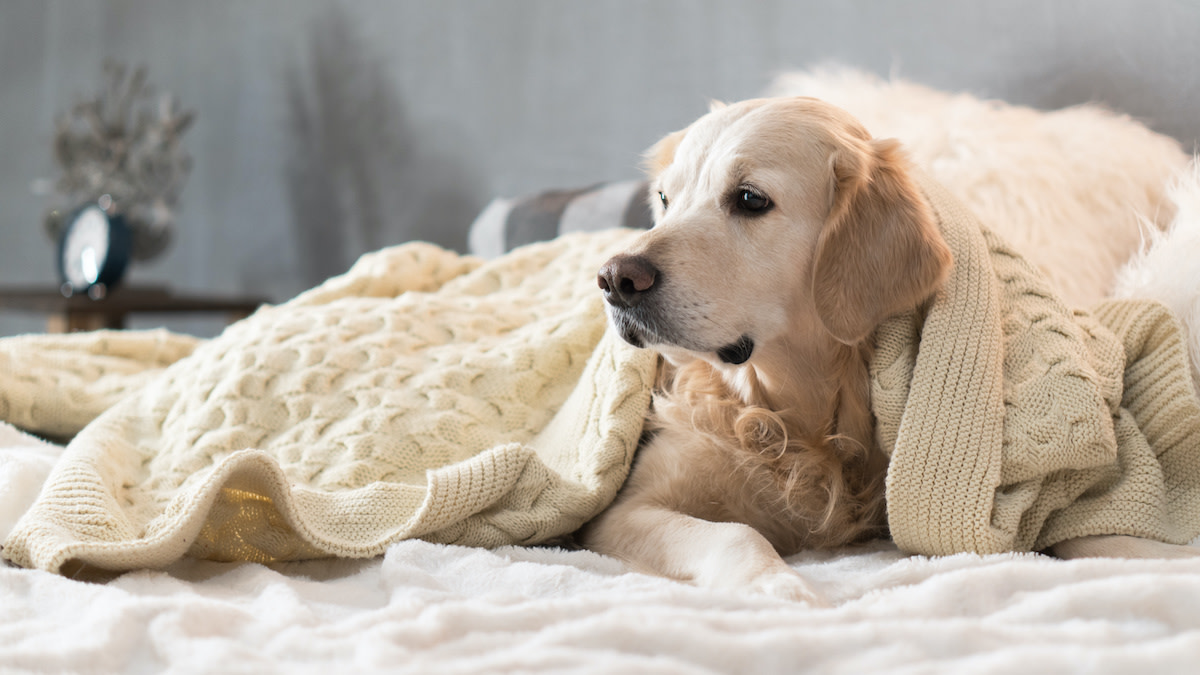Home & Lifestyle
How to Calm a Dog Down: 11 Tips for Calming Your Dog
Written by MasterClass
Last updated: Mar 2, 2022 • 2 min read
Just like humans, dogs experience anxiety. Dog owners can help soothe their pooch by learning a few effective techniques for keeping a dog calm.
Learn From the Best
How to Calm a Dog Down
There are several techniques pet owners can employ to help keep their dogs calm. Consider these tips for calming down your dog.
- 1. Learn to read their body language. Anxious dogs tend to drool, pant heavily, pace back and forth, or whine when they're feeling anxious. Some dogs may tuck their tail between their legs or pin down their ears. Pay close attention to your dog's body language so you can react quickly to help settle them down.
- 2. Show them some physical affection. Few things get a dog to calm down faster than the owner's touch. Pet parents can help alleviate their dogs' stress by holding them or petting them during stressful events.
- 3. Put on some classical music. Music therapy has been shown to work for some anxious dogs. Dogs with mild separation anxiety may benefit from music therapy when they're left at home alone.
- 4. Try aromatherapy. Use an essential oil diffuser to fill the air with calming aromas such as chamomile or lavender. You can also try diffusing synthetic pheromones that can help calm dogs.
- 5. Provide a calm, safe place. If your dog's anxiety is triggered by thunderstorms or loud noises like fireworks, it's important that your dog feels safe when these triggers occur. Dogs’ ears are much more sensitive than human ears, so consider placing a white noise machine in a cozy spot in the house to drown out the noises that are scaring them. Keep stimuli to a minimum.
- 6. Dress your dog in a calming vest. Calming vests wrap around your dog, offering a consistent level of pressure that can make them feel calm during stressful situations.
- 7. Provide proper socialization. Exposing puppies to a wide array of social situations can help stave off anxiety at a young age, but you may want to skip the dog park. Provide socialization in a more controlled environment first. Older dogs who may have pre-existing traumas or phobias may need the help of a trained behaviorist.
- 8. Make sure hyper dogs get enough exercise. Sometimes the best thing for a hyperactive dog is to let them get their energy out through exercise. If your dog is exhibiting destructive behaviors at home—chewing, jumping, biting—they likely have pent-up energy that needs to be exhausted. Take them for a walk or give them some extra playtime to help bring down their stress level.
- 9. Avoid eye contact with hyper dogs. Dogs love attention, but sometimes this can be counterproductive. Hyper dogs who are exhibiting anxious behaviors may feel validated when they receive attention while acting out. Instead, try to ignore a hyper dog until they calm down. Then reward them for calming down with lots of eye contact and dog treats.
- 10. Give them calming supplements. Chamomile, pet-friendly CBD oils, and melatonin are all good options for helping lower your dog's heart rate. Check with your veterinarian before giving your dog any over-the-counter supplements to ensure you’re giving your dog the correct dose.
- 11. Consider anxiety medication. If most calming techniques are not working to calm your dog down, talk to a veterinarian about getting your dog a prescription anxiety medication.
Want to Learn More About Training the Goodest Boy or Girl?
Your dream of having a dog who understands words like “sit,” “stay,” “down,” and—crucially— “no” is just a MasterClass Annual Membership away. The only things you’ll need to train up a well-behaved pup are your laptop, a big bag of treats, and our exclusive instructional videos from superstar animal trainer Brandon McMillan.
